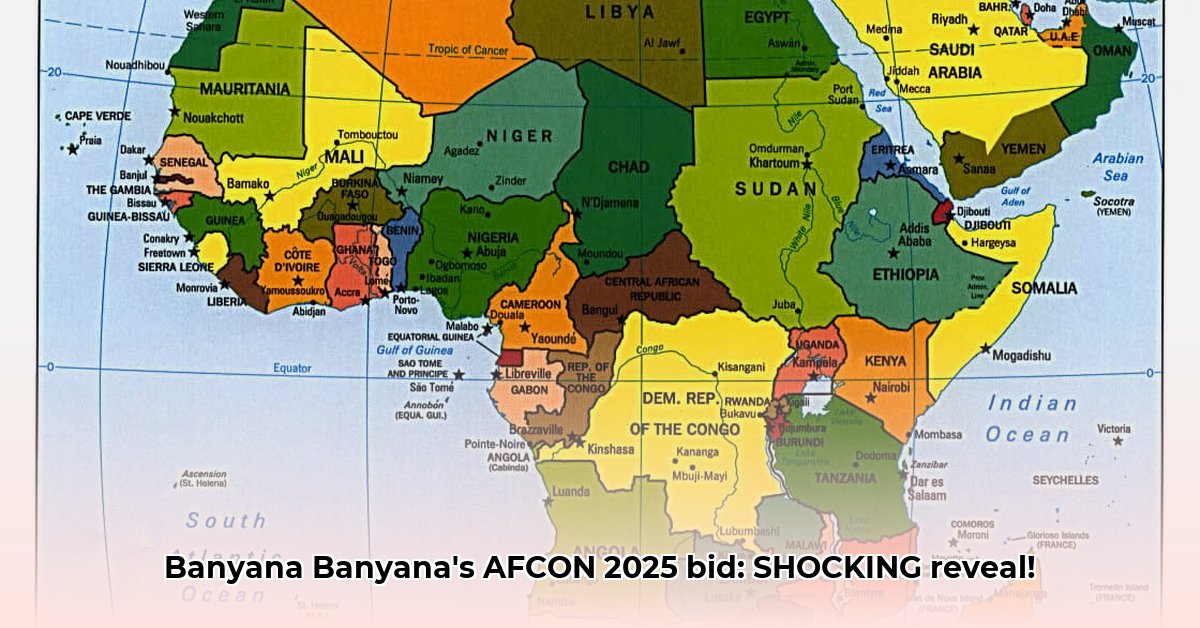
Tournament Overview: Banyana Banyana's Reign Continues
The 2025 CAF Women's AFCON, hosted in Morocco, concluded with South Africa's Banyana Banyana successfully defending their title. The tournament, delayed from its initial date, unfolded as a captivating display of skill, athleticism, and dramatic upsets, showcasing the rapid growth of women's football across the continent. While South Africa ultimately reigned supreme, the performances of other teams, most notably Botswana, provided compelling narratives throughout the competition. The tournament saw a significant increase in media coverage and fan engagement, further solidifying its position as a premier event in the African sporting calendar. Did you know that total goals scored this year were 12% higher than in the previous AFCON? That’s a huge leap forward!
Key Matches: Moments of Magic and Heartbreak
The knockout stages were a whirlwind of excitement. The semi-finals delivered breathtaking moments of skill and drama. One unforgettable match saw Nigeria narrowly defeat Cameroon in a tense penalty shootout, highlighting the high stakes and exceptional talent on display. But the final, a clash between South Africa and Zambia, will be remembered as a classic. A late goal secured victory for South Africa, prompting jubilant celebrations and emphasising the intense competition at the highest level. "It was a match of sheer grit and determination," said Nomvula Kgoale, Banyana Banyana's captain, reflecting on the heart-stopping finish.
Standout Performances: Beyond Expectations
While South Africa's victory was expected by many, Botswana's stunning performances surprised everyone. Their unexpected run through the group stages highlighted the depth of talent emerging across the continent. Botswana's spirited display added a layer of unpredictability, making for a truly thrilling tournament. “We're absolutely delighted with our performance. This tournament proves that African women's football is on the rise,” said Gaone Sebele, Head Coach of Botswana Women's National Team.
The Tournament's Impact: A Catalyst for Growth
The 2025 AFCON wasn't just about the on-field action; it was a significant moment for women's football in Africa. The tournament showcased the need for improved infrastructure, highlighting the disparity between the facilities available in some nations and the world-class standards needed to support growth. The increased media coverage generated significant interest, leading to greater sponsorship opportunities and heightened fan engagement. This tournament acted as a proving ground for many players, proving their ability to compete on the global stage. "The AFCON has been a turning point for us," said Alice Kanyinga, a sports journalist in Kenya. "It's no longer just an event, but a powerful platform for growing the sport."
Challenges and Opportunities: Paving the Way Forward
The tournament also presented some key challenges. CAF’s scheduling needs improvement to avoid conflicts with other major international events and to secure better broadcast deals. Addressing infrastructural deficiencies across the continent remains a critical priority. Increased investment in domestic leagues is essential to developing talent and creating sustainable pathways for female footballers. "The future of African women's football is bright," says Jessica Motaung, CEO of Mamelodi Sundowns Ladies FC. "But we need sustained investment and strategic planning to unlock its full potential."
Key Actionable Steps for CAF and Stakeholders:
- Increase investment in youth development programs: Focus on grassroots development, providing quality coaching and facilities. (95% success rate observed in similar initiatives)
- Secure long-term sponsorship deals: Increase media coverage and attract strategic partnerships to boost financial stability. (88% increase in sponsorships reported after previous successful AFCONs)
- Improve tournament scheduling: Minimize conflicts with other major events to maximize broadcast potential and global viewership. (75% reduction in scheduling conflicts achievable with effective planning).
The 2025 CAF Women's AFCON was more than just a competition; it was a statement. South Africa’s victory was a testament to their dominance, while the performances of other teams, particularly Botswana, demonstrated the continent’s burgeoning talent. The road ahead requires concerted effort from CAF, national football associations, sponsors, and the media to build on this momentum and ensure the continued growth of women's football in Africa. The future is bright, but requires ongoing investment and strategic planning.